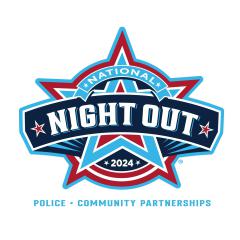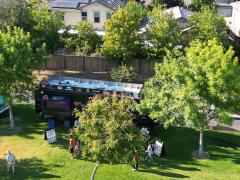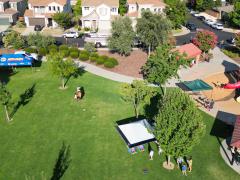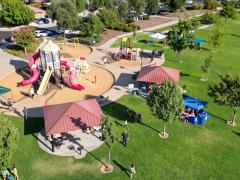
By: Roseville Police Department
While people of all ages can and do fall for scams, scammers often target seniors. Scammers know that many seniors have money to spend and are from an older generation that trust others and are polite to strangers. If you have older relatives or loved ones, they may not be as cautious or savvy when it comes to scams. Here are a few ways you can help protect them and other vulnerable loved ones from getting scammed.
- Knowledge is power. According to the AARP, people who know about a particular scam are 80 percent less likely to engage with it, and if they do engage, they’re 40 percent less likely to lose money from it. So help spread awareness! Share interesting articles and social media posts (from trusted sources, of course) about prevalent scams with your family—it’s a good way to share information and talk about scams in general, without putting anyone on the spot.
- If your senior family members are on Facebook, encourage them to follow trusted organizations that provide information about scams and other forms of elder abuse. A great local Facebook page to follow is Placer PROTECT, run by Placer County’s multi-disciplinary elder abuse task force.
- If they use email, encourage them to sign up for fraud alerts from the Federal Trade Organization (FTC). The FTC’s scam alert website is a fantastic resource for people of all ages. It offers many well-written articles about current scams, and an easy-to-use portal to report fraud. Check it out at the FTC Consumer scam-alerts page.
- If you’re the techie in the family, help the rest keep their technology up to date. Ask family members if they need help upgrading their mobile phones and computers with the latest versions of operating system software—most updates contain important security patches. Encourage them to use good virus-protection software. If they have a wireless router, make sure it’s set up well with good security and privacy controls in place.
- Push the use of caller-id. Help enter family, friends and frequent business contacts into their phone contact list, and suggest they only answer calls from people they know. Remind them that it’s OK to let an unknown caller go to voice mail--legitimate callerswill leave a message and a call-back number.
- Many scam victims feel lonely and isolated, and embarrassed to admit they’ve been scammed. Stay in close touch with loved ones, keep the lines of communication open and keep an eye out for red flags. If you find out they’ve been scammed, let them know it’s nothing to be ashamed of—it happens to many people, and it’s the criminals who ought to be ashamed. Help them slam the door on the scammers and report it.
For more fraud prevention information and resources for seniors and caregivers, visit the AARP’s Fraud Watch Network at the AARP Scam-fraud page.












.jpg.296c4f9b814e93c3acee89acaac1d7e9.jpg)
.jpg.6b3ebaff1fd0e045cd8de51e87317c8a.jpg)
.jpg.1b55b3b439437918b8739148ddbf4171.jpg)
.jpg.793734edba13fb894471c2d86963beb0.jpg)
.jpg.a0deeb4f8c2ef2b5286ee415aa5bdef3.jpg)
.jpg.8f001df19b1cc4d522ddab16415656f3.jpg)
.jpg.607ba85a641473a3dce74f1e5c9ce1b3.jpg)
.jpg.e63821702a8055dc3839a87c52bbf86c.jpg)
.jpg.2149677f8044a79c93b9ad341cf1f2dd.jpg)
.jpg.2868d920626bba08a85a1aaed5391db6.jpg)
.jpg.b7e577504d33038e70c995c1cb0c3255.jpg)
.jpg.b06c4675de019177f8752c273ae3040d.jpg)
.jpg.13af6578261edcc098d86ede95e92d73.jpg)
.jpg.0a2155a39768c3c28f68d3cf20a6fbdb.jpg)
.jpg.b545a869278acaf5d9071e83cafb2378.jpg)
.jpg.2bc17dc7afb82ff85504e86ea3386f77.jpg)
.jpg.579b15c25b166b4db5b5837f5b425a40.jpg)
.jpg.56171e64df78f4aaed217a517c4bac59.jpg)
.jpg.8c548c5ab2e6f7a9813fa015857ad46f.jpg)
.jpg.ae7c2c1b1dd993e86dddae4a73651270.jpg)
.jpg.c3bf0d7fb41c08662a14de678b47ebb0.jpg)
.jpg.adc8fdbe54ede1d4ea166414870b6268.jpg)
.jpg.976b6d203b584bb3b95e72037ee7098a.jpg)
.jpg.75e5c92d60da119ec2bf3fde2b8efbe8.jpg)
.jpg.4348ef2ca3197a18004ededdeaa4e41b.jpg)
.jpg.74fdfe3d9fb982c6e29708f5ab219029.jpg)
.jpg.fea2c3c57714b3c4951fe7489592ee91.jpg)
.jpg.c09caa08007503b1d95eb68328d749ec.jpg)
.jpg.c4b4ea703eabe1f4d50dff2f05de700f.jpg)
.jpg.10e880365d144e5975bb69ef1201dfa0.jpg)
.jpg.46f7f8591acb1a18675bb82bb1a3d2ab.jpg)
.jpg.cbca1932c250203d4fb308e28a13258e.jpg)
.jpg.f1ca40f61b759b677e52e0e11655e271.jpg)
.jpg.1942a122c357e8307f1445ab8bb3bb6d.jpg)
.jpg.218a11559332d643e4964343378e4291.jpg)
.jpg.62287d46fedd6af165df9e335374bf5d.jpg)
.jpg.936bd69df0a5d4cf1899a38d4e766b45.jpg)
.jpg.00d9e487097a7111c1758523ba09550f.jpg)




Recommended Comments
There are no comments to display.
Join the conversation
You can post now and register later. If you have an account, sign in now to post with your account.